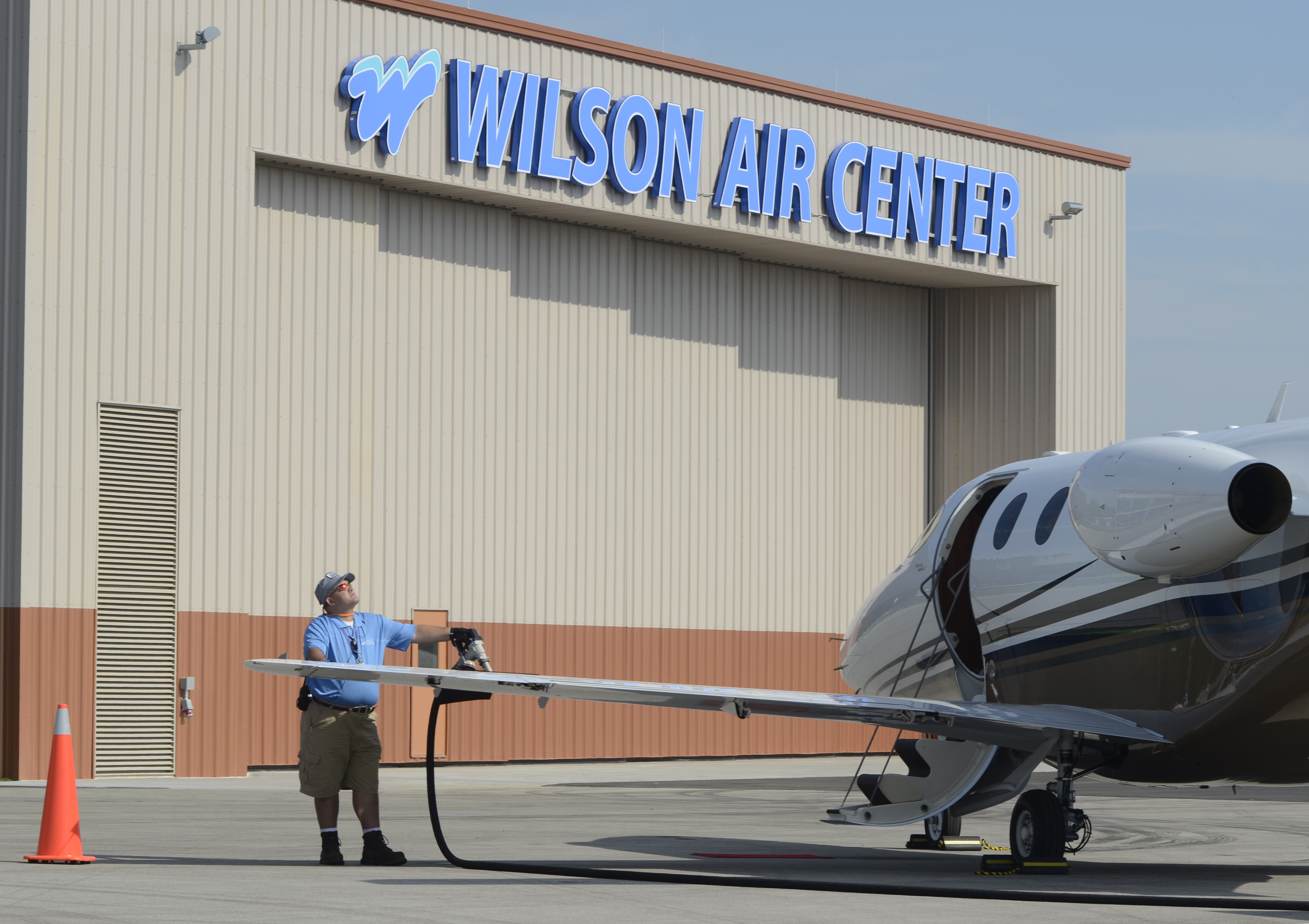When you think about it, Chattanooga leaders have used tax dollars in some pretty ridiculous and irresponsible ways in recent years.
The EPB Smart Grid that allowed government to get in the cable and Internet business comes to mind. The scheme cost taxpayers more than $160 million. There are the massive rows of Bike Chattanooga rental bicycles -- which gobbled $2 million in public money -- that sit mostly unused in their huge racks throughout the city. And it's hard to forget about that dopey $32,500 blue rhinoceros statue, purchased in the name of art.
But if there was an award for the single most outrageous boondoggle in Chattanooga, it would have to go to the Chattanooga Metropolitan Airport Authority for spending $10 million in local, state and federal funding to get in the private plane service business.
Since 2002, Lovell Field has had a perfectly good fixed based operator called TAC Air. A fixed based operator (FBO) handles most aviation needs at an airport that are not related to passenger airlines. That includes services such as fuel sales, plane maintenance, management of charter plane operations, pilot training services and plane storage.
Even though TAC Air was meeting the needs of Chattanooga's general aviation customers -- and despite the fact that it had paid its own way in terms of building and maintaining its facility -- TAC Air's landlord, the airport authority, decided to use tax dollars to get into the FBO business.
Claiming there was a need for competition, the authority poured $5 million -- $4.5 million in state aviation fuel tax funds and $500,000 from local airport passengers -- into a luxurious new FBO facility. Realizing that it had no idea how to run an FBO, the Airport Authority gave a no- risk contract to a company called Wilson Air Center to oversee the business.
The airport authority pays Wilson $10,000 per month, even if the facility loses money. If the FBO makes money, Wilson gets a hefty cut of the profits.
Wilson admitted in its proposal to win the sweetheart contract that it would likely lose $108,000 in its first year -- a loss that would have to be underwritten by taxpayers. By the second year, Wilson estimated that the FBO would turn a modest $24,000 profit. Well, now we're actually in the second year of operations, and that profit never came. As of May, the government-owned FBO lost -- and cost taxpayers -- an astounding $619,000.
The boondoggle keeps getting worse for taxpayers. The Tennessee Aeronautics Commission gave away another $5 million to the airport authority for new hangar space for the government-owned FBO, even though the airport already has hangar space coming out of its ears. TAC Air currently has approximately 40,000 square feet of unused hangar space and much of the government-owned FBO's hangar space sits empty, as well.
Besides the loss of tax dollars, there is another injustice taking place. TAC Air, which has employed hard-working Chattanoogans, paid taxes and been a good corporate citizen in the city for a decade is actually being forced to subsidize its competitor. The lease payments that TAC Air pays to the airport go toward underwriting a portion of the government-owned FBO's losses. Additionally, the state taxes on the aviation fuel sold at TAC Air pumps go toward the state grants used to build the government-owned FBO.
Why is the government-owned FBO failing so badly? It seems the airport authority, in all its brilliance, forgot to consider the fact that if a second FBO were needed -- either because TAC Air was unable to serve all of the general aviation customers at the Chattanooga airport or because TAC Air was failing to provide quality service at a reasonable price -- a private company would come in.
The idea of government getting in the business of serving private plane customers is clearly a losing proposition. Still, that didn't stop the airport authority from irresponsibly building an FBO -- and now taxpayers are paying the price for its mistake.
